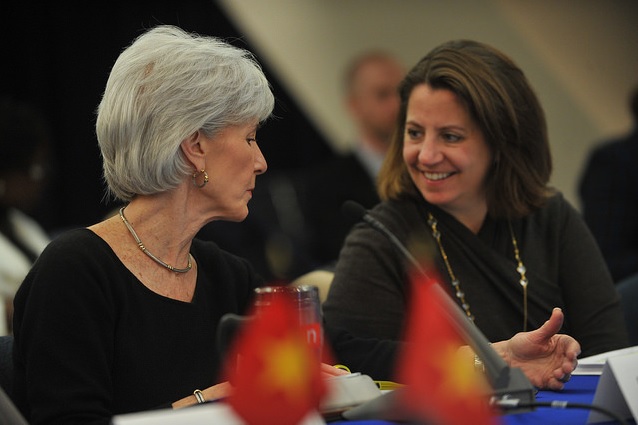
Today, I joined Secretary Kathleen Sebelius and representatives of more than 25 nations, the World Health Organization, the World Organization for Animal Health, and the Food and Agriculture Organization of the United Nations to launch the Global Health Security Agenda, an international effort to enhance our ability to prevent, detect, and respond to outbreaks of infectious disease threats.
This is not just a health challenge – it is a security challenge as well. Infectious diseases have the potential to cause enormous damage in terms of lives lost, economic impact, and ability to recover, just as with nuclear, chemical, or cybersecurity attacks. In today’s interconnected world, they emerge and spread faster than ever before. These threats know no borders, and no one country can address them alone. That’s why the United States is bringing together international partners across sectors – from agriculture and health to defense, foreign policy, and development – to address this challenge.
Today, we pledged to work with at least 30 international partners as they strengthen their global health security capacity in the next five years. That means working together to slow the spread of antimicrobial resistance, reducing zoonotic disease transmission, establishing national biosecurity systems, increasing routine immunization, strengthening national infectious disease surveillance and laboratory systems, and developing real-time electronic reporting systems and emergency operations centers. The President’s FY2015 Budget will include a request for $45 million in new funding specifically dedicated to this effort. And later this year, we will convene partner nations at the White House to review our collective progress, highlight new commitments, and identify additional actions we can take together to make the world safer from dangerous diseases.
Check out the Global Health Security Agenda and learn more about this important effort.


